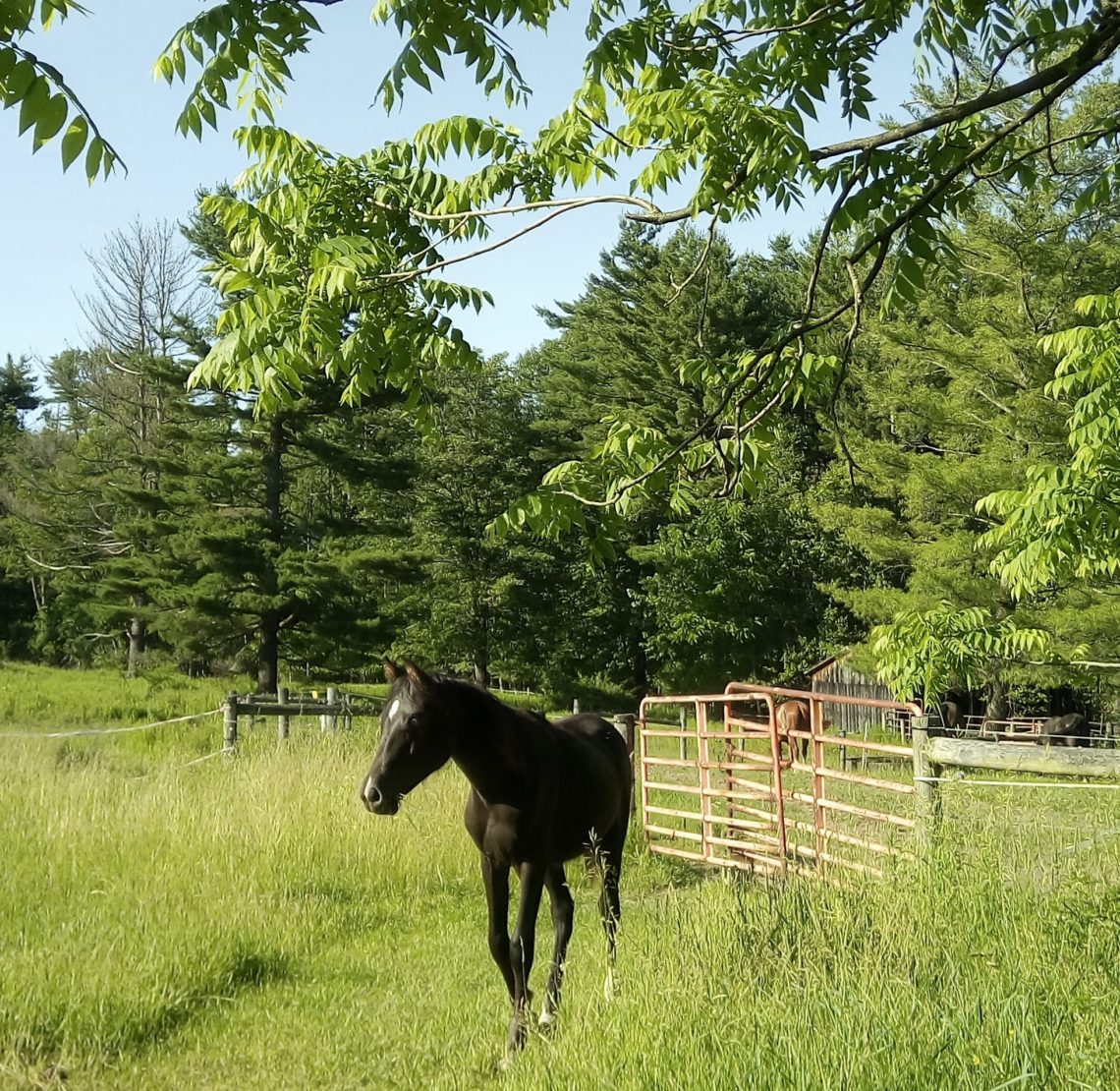
Densensitization, Training & Trust
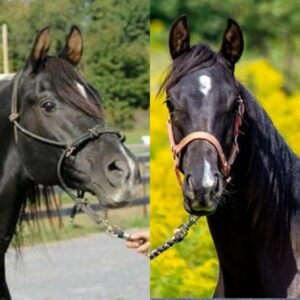 |
This post is part of a series I am writing about training, or being trained by, 2 stallions. Nafis Rafiq “Rafi” is 24, a been-there-done-that wise protective smart patient stallion. Nasr Mubaarak “Nasr” is his yearling son, just as smart and wise as his daddy, with the curiosity of youth mixed in. Stallions in general aren’t part of the majority American horse culture. Most of us grew up riding geldings, or mares. Stallions are generally reserved for the breeding farms and experienced riders and trainers, and are often perceived as dangerous or difficult. Thank goodness my first stallion experiences have been with Rafi. I am figuring out much as I go along, finding a path that honors their conscious being, while also keeping me and other people and horses safe. I have been blessed to find some conscious horsemanship for stallions mentors in the books of Linda Kohanov and Klaus Hempfling and the teachings of Kim Walnes and her horse Gideon. Join me for the journey!
|
Some more pieces of the puzzle clicked into place yesterday for me, and should help improve how I relate to all my herd, not just my 2 stallions.
First, I read an article by Crissi McDonald called Your Horse Isn’t Distracted. Here are some key quotes:
- the average reaction time for a visual stimulus in humans is 250 milliseconds and 170 milliseconds for an auditory stimulus. Horse’s auditory reaction time is 140-160 milliseconds, and their visual reaction time is 180-200 milliseconds.
- Curiosity allows and fosters learning. Any time a horse fears for his life he not learning. Until their question of safety is answered our horse will continue to use every sense he has to figure out whether to stay or leave.
- Horses constantly monitor everything that is going on around them. They can’t turn it off and on like we do with our selective seeing.
And most importantly…Because if we can help the horse feel safe, that means that we are all safer. If our horses feel safe with us the chances of accidents, misunderstandings and miscommunication get lower.
In conjunction with this, Kim Walnes posted a wonderful 4-part series on Facebook (here and here and here and here) about working with Gideon and balloons. Kim felt, and still feels, that if we can teach our horses (especially our stallions) that if we say a situation is safe, they can trust us. That trust turns fear into curiosity and heads off the many behaviors that would make people feel unsafe around a stallion.
Putting this all together, what clicked for me is:
We can never hope to react faster than the horse.
The horse has better senses than we do, and is always vigilant, and we cannot turn this off.
Stallions especially live to protect. A stallion will be especially vigilant.
The best way to head off fear-based explosions is to turn fear into trust, consciously.
Desensitization is of very limited use. It only removes the reaction to whatever stimulus was applied and not to any other scary situation. Because of the limited use, and the harm to the trusting bond of repeatedly scaring your horse in order to remove the flight reaction, it’s a tool I will avoid if at all possible.
My instinct had been to take Nasr for walks, explore as many new things as we can. Now that I have read these articles, I’m seeing that we truly need to focus on this, and focus on consciously building our trust in each other, that he can see/hear/sense things that I cannot, and that I will not deliberately put him into any dangerous situation.
I see some balloon and tarp and pool noodle shopping in my future.
And so our adventure continues…
You May Also Like
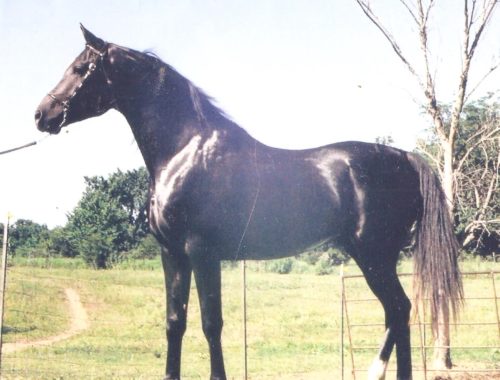
What are Malabar Arabian horses?
January 14, 2020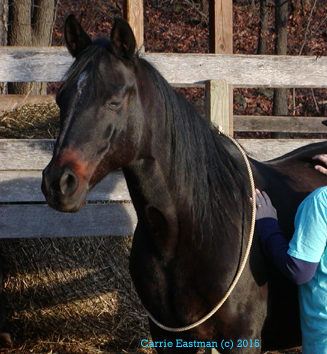
Turning from the core, from the horse’s viewpoint
May 31, 2017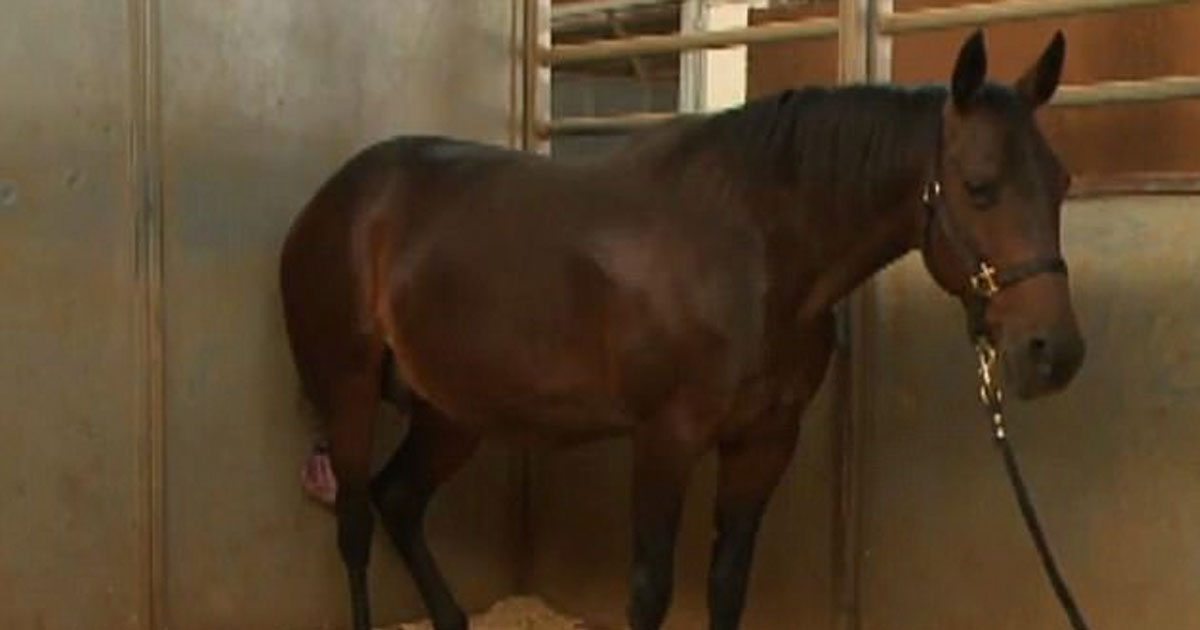


2 Comments
Crissi McDonald
Hello! Thank you so much for spreading solid information about horses! It was great to hear the insights you put together from reading my blog. ?
C. H. Eastman
Hello! Thank you for your lovely feedback. 🙂 Your blog article is fabulous! Definitely another missing piece of the puzzle now filled in. I hope it helps many horses and their people find a better way of interacting.